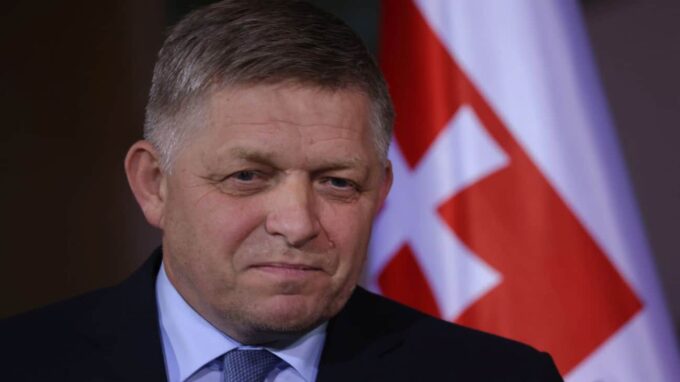The Prime Minister of Slovakia, Robert Fico, expressed his willingness to support a nationwide referendum on the lifting of European Union sanctions against the Russian Federation

This decision has sparked a series of discussions and surprises amid the tense context of international relations and internal political processes within the country. According to Fico, if such an initiative were officially proposed and organized, he would definitely support holding a vote among citizens. In an interview with the Slovak television channel STVR, the politician shared his view, comparing sanctions to a "plague" — stating that these restrictive measures harm the European economy more than they have a significant impact on the Kremlin. The Prime Minister emphasized that the inability of sanctions to advance toward their intended goal is what makes him skeptical about their effectiveness. The next question concerned direct support for the referendum — whether Fico would agree to hold such a vote if it were initiated. In response, he stressed that he does not necessarily need a referendum to make a decision, but if such an initiative arises, he will support it without hesitation. "If such a referendum takes place, I will calmly support it. That is my position," he stated. In his remarks, the politician also paid particular attention to the overall history of sanctions against Moscow. According to him, the current restrictive measures are inappropriate and even harmful, especially given the alleged first positive developments in the diplomatic process and negotiations between Kyiv and Moscow. "How can we, at a time when negotiations on a peaceful resolution are ongoing, impose massive sanctions on Russia? This confirms that many measures from the West are completely insincere and politically motivated," said Fico. As a reminder, at the end of April, the President of Slovakia, Peter Pellegrini, received a petition from the far-right party "Hnut slovakého obrodenia" (SHO), calling for a referendum on lifting sanctions against Russia. According to data signed by over 400,000 citizens, the head of state announced that he would take up the matter and make a decision after analyzing the situation. According to legislation, for the results of the referendum to be legitimate, at least 50% of voters must participate, and the decision must be approved by a majority of those who vote. Meanwhile, as early as March, Fico had already expressed his position regarding sanctions, threatening to block them if they began to harm internal security and the possibility of achieving peace in Ukraine. At that time, he hinted that it was unstrategic and nonsensical to apply mechanisms that, instead of changing the situation, only complicate the lives of European countries and generate social tensions. Overall, the position of Slovak leadership regarding sanctions and their potential lifting remains ambiguous and sparks active discussions both within internal political circles and on the international stage. The topic of a referendum, on the one hand, reflects a growing segment of public opinion that favors predominantly diplomatic and peaceful ways of resolving conflicts, while on the other hand, it becomes a field for internal political battles and geopolitical games in the region.

